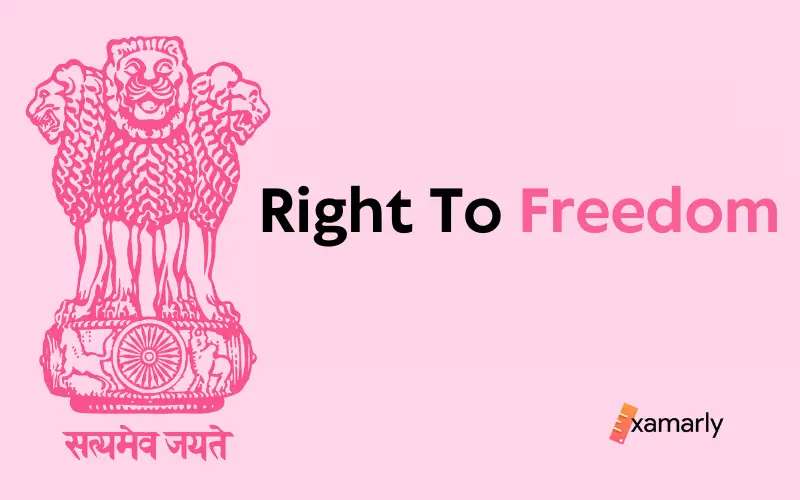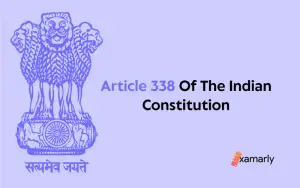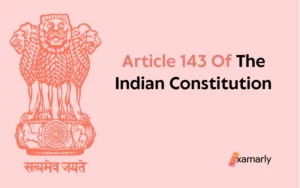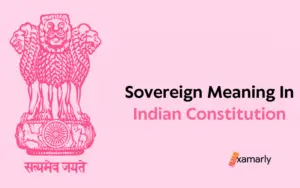One of the most fundamental rights that citizens possess is the right to freedom. This right is specifically outlined in the Indian Constitution and is considered to be an integral part of the functioning of the Indian democratic system. In order to truly understand the importance and implications of this right, it is necessary to have a comprehensive understanding of what rights are, and what they encompass. This subject is a major topic of study in the field of politics and is also a prominent feature of the Civil Service Examination Program of the Union Public Service Commission (UPSC).
The Indian Constitution specifically mentions six fundamental rights that are deemed to be essential for the functioning of democracy in India. These rights include the right to freedom, which encompasses various aspects such as freedom of expression and expression, freedom of association, individual freedom, and the freedom to lead lives of dignity. It is important to note that while the right to freedom is a fundamental right, it is not absolute, and there may be certain exceptions or limitations to its scope. It is crucial to understand these exceptions in order to fully comprehend the implications of this right.
- What Is the "Right To Freedom"?
- Right To Freedom Under Article 19
- Right To Freedom Under Article 20
- Right To Freedom Under Article 21
- Right To Freedom Under Article 21(A)
- Right To Freedom Under Article 22
- What is meant by "Preventive Detention"?
- Importance of the Right To Freedom
- Conclusion
- FAQs Related To the Right To Freedom
- What is the right to freedom under the Indian Constitution?
- What are the rights included in the right to freedom under the Indian Constitution?
- Are there any restrictions on the right to freedom under the Indian Constitution?
- How does the Indian Constitution define freedom?
- Can the government restrict the right to freedom under the Indian Constitution?
- Is the right to freedom only protected by the Indian Constitution?
What Is the “Right To Freedom”?
The concept of freedom encompasses various rights and privileges that are granted to individuals. These rights include but are not limited to, the right to movement, the right to free speech and self-expression, the right to practice one’s own religion, the right to travel, the right to engage in any occupation, the right to self-identify, and the right to property.
In order for individuals to fully enjoy these rights, the state should minimize its interference in the lives of individuals, and instead act as a minimal state. This is a principle upheld by democratic states, which strive to provide their citizens with necessary liberties in the form of these freedoms.
In the Indian context, the right to freedom is outlined in the Constitution as a fundamental right under Articles 19 to 22. These rights aim to promote the ideals of liberty outlined in the Preamble of the newly independent India, with the goal of eliminating inequalities among individuals, and ensuring that all individuals are able to lead a dignified life. These rights are seen as an important aspect of the democratic system in India and are meant to safeguard the rights of citizens and ensure that they are able to live in a free and just society.
Right To Freedom Under Article 19
Protection of certain rights regarding freedom of speech, etc.
(1) All citizens shall have the right—
(a) to freedom of speech and expression;
(b) to assemble peaceably and without arms;
(c) to form associations or unions or co-operative societies;
(d) to move freely throughout the territory of India;
(e) to reside and settle in any part of the territory of India; and
(f)[Omitted by the Constitution (Forty-fourth Amendment) Act, 1978]
(g) to practise any profession, or to carry on any occupation, trade or business.
(2) Nothing in sub-clause (a) of clause (1) shall affect the operation of any existing law, or prevent the State from making any law, in so far as such law imposes reasonable restrictions on the exercise of the right conferred by the said sub-clause in the interests of the sovereignty and integrity of India], the security of the State, friendly relations with foreign States, public order, decency or morality, or in relation to contempt of court, defamation or incitement to an offence.
(3) Nothing in sub-clause (b) of the said clause shall affect the operation of any existing law in so far as it imposes, or prevent the State from making any law imposing, in the interests of the sovereignty and integrity of India or public order, reasonable restrictions on the exercise of the right conferred by the said sub-clause.
(4) Nothing in sub-clause (c) of the said clause shall affect the operation of any existing law in so far as it imposes, or prevent the State from making any law imposing, in the interests of the sovereignty and integrity of India or public order or morality, reasonable restrictions on the exercise of the right conferred by the said sub-clause.
(5) Nothing in sub-clauses (d) and (e) of the said clause shall affect the operation of any existing law in so far as it imposes, or prevent the State from making any law imposing, reasonable restrictions on the exercise of any of the rights conferred by the said sub-clauses either in the interests of the general public or for the protection of the interests of any Scheduled Tribe.
(6) Nothing in sub-clause (g) of the said clause shall affect the operation of any existing law in so far as it imposes, or prevent the State from making any law imposing, in the interests of the general public, reasonable restrictions on the exercise of the right conferred by the said sub-clause, and, in particular, nothing in the said sub-clause shall affect the operation of any existing law in so far as it relates to, or prevent the State from making any law relating to,—
(i) the professional or technical qualifications necessary for practising any profession or carrying on any occupation, trade or business, or
(ii) the carrying on by the State, or by a corporation owned or controlled by the State, of any trade, business, industry or service, whether to the exclusion, complete or partial, of citizens or otherwise.
- Article 19 of the Indian Constitution grants all citizens the right to freedom of speech and expression, the right to assemble peaceably and without arms, the right to form associations or unions or cooperative societies, the right to move freely throughout the territory of India, the right to reside and settle in any part of the territory of India, and the right to practice any profession or carry on any occupation, trade, or business.
- Clause 2 of the article states that the freedom of speech and expression granted under sub-clause (a) of clause (1) can be subject to reasonable restrictions imposed by law in the interests of the sovereignty and integrity of India, the security of the State, friendly relations with foreign States, public order, decency or morality, or in relation to contempt of court, defamation, or incitement to an offence.
- Clause 3 states that the freedom of assembly granted under sub-clause (b) of clause (1) can be subject to reasonable restrictions imposed by law in the interests of the sovereignty and integrity of India or public order.
- Clause 4 states that the freedom to form associations or unions or co-operative societies granted under sub-clause (c) of clause (1) can be subject to reasonable restrictions imposed by law in the interests of the sovereignty and integrity of India, public order, or morality.
- Clause 5 states that the freedom of movement and the freedom to reside and settle in any part of the territory of India granted under sub-clauses (d) and (e) of clause (1) can be subject to reasonable restrictions imposed by law in the interests of the general public or for the protection of the interests of any Scheduled Tribe.
- Clause 6 states that the freedom to practice any profession, or carry on any occupation, trade, or business granted under sub-clause (g) of clause (1) can be subject to reasonable restrictions imposed by law in the interests of the general public. This can include restrictions on professional or technical qualifications necessary for practicing a profession or carrying on a trade, business, or service, or the carrying on by the State or a corporation owned or controlled by the State of any trade, business, industry, or service, whether to the exclusion of citizens or not.
Right To Freedom Under Article 20
Protection in respect of conviction for offences
(1) No person shall be convicted of any offence except for violation of a law in force at the time of the commission of the Act charged as an offence, nor be subjected to a penalty greater than that which might have been inflicted under the law in force at the time of the commission of the offence.
(2) No person shall be prosecuted and punished for the same offence more than once.
(3) No person accused of any offence shall be compelled to be a witness against himself.
- Article 20 of the Indian Constitution states that no person shall be convicted of any offence except for violation of a law that was in force at the time of the commission of the act charged as an offence.
- It also states that no person shall be subjected to a penalty greater than that which might have been inflicted under the law in force at the time of the commission of the offence.
- Clause 2 of the article states that no person shall be prosecuted and punished for the same offence more than once.
- Clause 3 states that no person accused of any offence shall be compelled to be a witness against himself. This is also known as the principle of self-incrimination or the right against self-incrimination. It means that an accused person cannot be forced to provide evidence against themselves and that any statement given by an accused person under compulsion is inadmissible as evidence.
Right To Freedom Under Article 21
Protection of life and personal liberty
No person shall be deprived of his life or personal liberty except according to procedure established by law.
- Article 21 of the Indian Constitution protects the right to life and personal liberty
- No one can be deprived of their life or freedom except in accordance with procedures established by law
- The interpretation of this article has evolved over time
- The Supreme Court has interpreted this article to include the right to live with dignity
- This right is considered to be the most important right as all other rights are dependent on it
- Article 21 establishes the difference between a police state and a rule of law.
The way Article 21 of the Indian Constitution is interpreted has undergone significant changes and developments in recent years. It is now considered the most important and central of all the fundamental rights. Additionally, it has also led to the recognition of various Directive Principles of State Policy as fundamental rights.
Some of the fundamental rights that have been implied under Article 21 include:
- The right to a livelihood
- The right to be protected from sexual harassment
- The right to privacy
- The right to education
- The right to health
- The right to a clean environment
- The right to a speedy trial
- The right to legal aid
- The right to travel abroad
- The right to be protected from violence in custody, among others.
Right To Freedom Under Article 21(A)
Right to education
The State shall provide free and compulsory education to all children of the age of six to fourteen years in such manner as the State may, by law, determine.
- Article 21(A) of the Indian Constitution guarantees the right to free and compulsory education for all children between the ages of six and fourteen.
- The State, or government, is responsible for ensuring that this right is upheld and implemented.
- The State may determine the manner in which this right is provided, through legislation or other means.
Right To Freedom Under Article 22
Protection against arrest and detention in certain cases
(1) No person who is arrested shall be detained in custody without being informed, as soon as may be, of the grounds for such arrest nor shall he be denied the right to consult, and to be defended by, a legal practitioner of his choice.
(2) Every person who is arrested and detained in custody shall be produced before the nearest magistrate within a period of twenty-four hours of such arrest excluding the time necessary for the journey from the place of arrest to the court of the magistrate and no such person shall be detained in custody beyond the said period without the authority of a magistrate.
(3) Nothing in clauses (1) and (2) shall apply—
(a) to any person who for the time being is an enemy alien; or
(b) to any person who is arrested or detained under any law providing for preventive detention.
(4) No law providing for preventive detention shall authorise the detention of a person for a longer period than three months unless—
(a) an Advisory Board consisting of persons who are, or have been, or are qualified to be appointed as, Judges of a High Court has reported before the expiration of the said period of three months that there is in its opinion sufficient cause for such detention: Provided that nothing in this sub-clause shall authorise the detention of any person beyond the maximum period prescribed by any law made by Parliament under sub-clause (b) of clause (7); or (b) such person is detained in accordance with the provisions of any law made by Parliament under sub-clauses (a) and (b) of clause (7).
(5) When any person is detained in pursuance of an order made under any law providing for preventive detention, the authority making the order shall, as soon as may be, communicate to such person the grounds on which the order has been made and shall afford him the earliest opportunity of making a representation against the order.
(6) Nothing in clause (5) shall require the authority making any such order as is referred to in that clause to disclose facts which such authority considers to be against the public interest to disclose.
(7) Parliament may by law prescribe—
(a) the circumstances under which, and the class or classes of cases in which, a person may be detained for a period longer than three months under any law providing for preventive detention without obtaining the opinion of an Advisory Board in accordance with the provisions of subclause (a) of clause (4);
(b) the maximum period for which any person may in any class or classes of cases be detained under any law providing for preventive detention; and
(c) the procedure to be followed by an Advisory Board in an inquiry under sub-clause (a) of clause (4).
- Article 22 of the Indian Constitution lays out the rights and protections for individuals who have been arrested.
- The person arrested must be informed of the grounds for their arrest as soon as possible and must have the right to consult and be defended by a legal practitioner of their choice.
- The person arrested must be produced before a magistrate within 24 hours, excluding travel time, and cannot be detained beyond that period without the authority of a magistrate.
- Exceptions to these protections apply for enemy aliens and individuals arrested or detained under laws for preventive detention.
- Laws for preventive detention cannot authorize detention for longer than three months without the opinion of an Advisory Board, and the maximum period for detention and the procedures for an inquiry must be prescribed by Parliament.
- When an individual is detained under a law for preventive detention, the authority making the order must communicate the grounds for the detention and give the individual the earliest opportunity to make a representation against the order.
- The authority making the order does not have to disclose facts that are considered to be against the public interest.
What is meant by “Preventive Detention”?
- Article 22 of the Indian Constitution addresses the provisions related to preventive detention, which falls under the Union and Concurrent list. This means that if there is a conflict, central law will prevail.
- Preventive detention is the act of detaining a person to prevent them from committing a prejudicial act. It is used as a precautionary measure and is not the same as criminal detention, which is based on legal evidence.
- The concept of preventive detention originated in British India with the Bengal Regulation Act of 1818. It requires legislation to be implemented and is not self-executory.
- The first law on preventive detention post-independence was the Preventive Detention Act, 1950, which was passed for one year and extended till its expiration in 1969. Later, various acts such as the Maintenance of Internal Security Act (1971), Conservation of Foreign Exchange and Prevention of Smuggling Activities Act (1974), Terrorist and Disruptive Activities (Prevention) Act (1985), and Prevention of Terrorism Act (2002) were created to check terrorist activities, internal security, and other illegal activities, but have since been repealed.
- The current preventive detention law is the National Security Act, 1980, which confers powers on Central and State governments to safeguard the country and maintain public order.
- It has been argued that the preventive detention law violates Articles 14, 19, and 21 as it does not employ a fair and just procedure of arrest and trial like other offences. However, it remains in the Constitution as a necessary measure.
Importance of the Right To Freedom
The right to freedom is an essential basic human right that guarantees the protection of individual rights and personal liberty. It is an essential aspect of human life, and it is important for the overall development and well-being of an individual as well as the society. It includes the freedom to profess any occupation or trade, speak and express freely, move and reside in any part of the country, and practice one’s religion without fear of persecution or discrimination.
The Indian national struggle against colonialism was a fight to be free of foreign imperial rule. The importance of freedom in India’s history has been demonstrated by the struggle against colonial rule which was a fight for the right to live life with dignity and the ability to determine how to live in accordance with the law. The right to freedom in India is closely linked to the ability to live a life with dignity and security.
Conclusion
The right to freedom encompasses a wide range of individual rights and liberties that allow individuals to live their lives without any form of coercion, whether it be physical or mental. The concept of freedom is not limited to being free from external constraints, but it also includes the freedom to live one’s life without any form of pressure or influence.
The Indian Constitution, through Articles 19 to 22, guarantees individuals a range of rights and freedoms, including the freedom of speech and expression, the freedom to assemble and associate, and the freedom to move and reside in any part of the country. However, it is important to note that the exercise of these rights should not infringe upon the rights of others. Therefore, the Constitution also includes reasonable restrictions to prevent the irrational or illegitimate use of one’s freedom.
It is crucial to remember that while enjoying our rights of freedom, one’s rights end where other’s rights begin. This means that individuals have a responsibility to use their rights in a manner that does not infringe upon the rights of others. The reasonable restrictions placed on the exercise of one’s freedom are in place to ensure that individuals are able to enjoy their rights while also respecting the rights of others.
In summary, the right to freedom not only means being free from external constraints but also includes freedom from any kind of pressure or influence in any aspect of one’s life. The Indian Constitution guarantees a range of rights and freedoms, but it is important to remember that the exercise of these rights should not infringe upon the rights of others, hence there are reasonable restrictions in place to check irrational and illegitimate use of one’s freedom.
FAQs Related To the Right To Freedom
What is the right to freedom under the Indian Constitution?
The right to freedom under the Indian Constitution refers to the individual rights and liberties guaranteed to citizens through Articles 19 to 22 of the Constitution. These articles guarantee the freedom of speech and expression, the freedom to assemble and associate, the freedom to move and reside in any part of the country, and other rights.
What are the rights included in the right to freedom under the Indian Constitution?
The rights included in the right to freedom under the Indian Constitution include the freedom of speech and expression, the freedom to assemble and associate, the freedom to move and reside in any part of the country, the freedom to practice any profession, and other rights.
Are there any restrictions on the right to freedom under the Indian Constitution?
Yes, there are reasonable restrictions on the right to freedom under the Indian Constitution. These restrictions are put in place to ensure that the exercise of one’s rights does not infringe upon the rights of others.
How does the Indian Constitution define freedom?
The Indian Constitution defines freedom as the ability to live one’s life without any form of coercion, whether it be physical or mental. It also includes the freedom to live one’s life without any form of pressure or influence.
Can the government restrict the right to freedom under the Indian Constitution?
Yes, the government can restrict the right to freedom under the Indian Constitution under certain circumstances, such as to maintain public order or to protect the rights of others. However, these restrictions must be reasonable and in accordance with the Constitution.
Is the right to freedom only protected by the Indian Constitution?
No, the right to freedom is protected by international human rights laws and conventions, such as the Universal Declaration of Human Rights.






